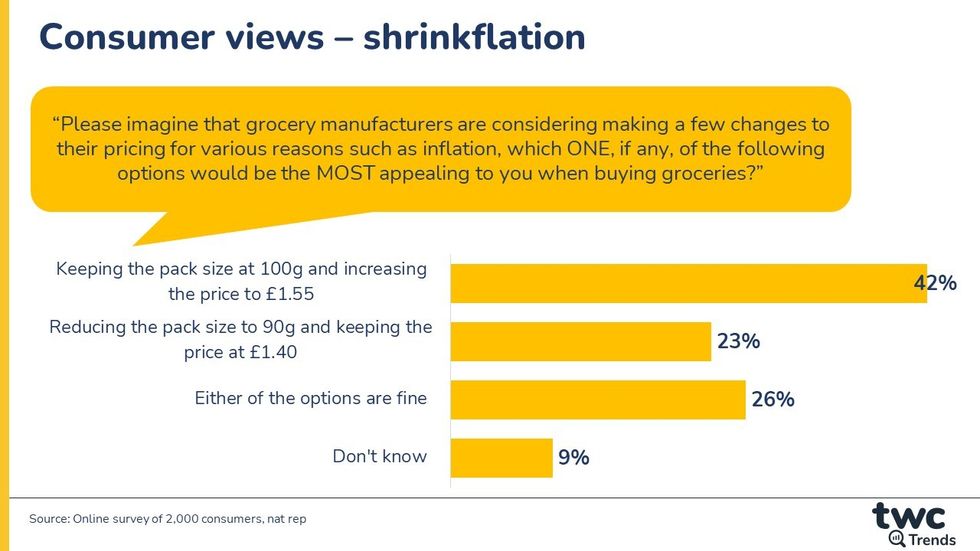Due to high inflation and the rising cost of doing business right through the supply chain, many suppliers are grappling with the value equation – should they hold their price and reduce the pack size, or is increasing the price an acceptable option?
New research from TWC, conducted in collaboration with the Federation of Wholesale Distributors (FWD) suggests that consumers’ preference is to avoid "shrinkflation" and instead increase the price of the pack. In a survey of over 2,000 consumers, more than four in ten (42 per cent) preferred this option, whilst 23 per cent would prefer that the price point is maintained, and the pack size reduced. The remaining 35 per cent said either option was fine, or they didn’t know.
Within independent convenience we also need to consider the issue of the shared margin, with both the wholesaler and the retailer needing a fair margin. An increase in price provides an opportunity to review the shared margin, which needs to reflect the increased cost of doing business right through the supply chain, in order to be sustainable for all parties.
In line with the retailers, the wholesalers approached as part of the project were largely in favour of maintaining price points and reducing the pack size. However one pointed out that “every product and category is different” and therefore there are no hard and fast rules.

“It seems in general the consumer would rather pay a bit more for the same size product – we suspect that consumers have noticed decreasing pack sizes for some time to the point that many products are now disappointing them because they contain so much less than in the past," said Sarah Coleman, Director of Communications at TWC. "There is an acceptance that prices are rising across the board and therefore now is a good time to raise prices - within reason.”
“Of course, there will always be a tipping point where a price will become unacceptable to the consumer. With this in mind, we have developed a price elasticity solution using a combination of wholesale, retail and consumer data, given the critical importance of getting the trade price right.”
More information regarding TWC Consulting price elasticity solution can be found here https://twcgroup.net/how-twc-consulting-can-help-optimising-your-pack-price/












 Steph McGovern
Steph McGovern Lucy Edwards
Lucy Edwards









